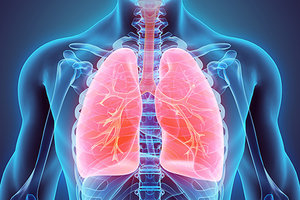Editor's Note: In a prior article (March 2007 issue), the author discussed Lung 1-4. This article cover points 5-8.
Just as the metal element gives value to the earth in the form of minerals and trace elements, as well as providing the pure, life-giving qi we breathe, metal gives the inner sense of self-worth to each individual.
Each inhalation is an act of inspiration, a word that not only describes the physical act of breathing, but also the working of this official at the level of mind and spirit. Belonging to metal, the lungs and colon are the link to the father (protector, leader, source of knowledge, provider of breath), just as the Earth is the link to the mother (nurturer, caregiver, cultivator, provider of nourishment). Our spirit is enriched when our connection with the father is strong, giving us the capacity to experience inspiration, worthiness and higher purpose.
 Each of the 11 points on the lung meridian has a name, translated from the Chinese characters, which suggests the unique gifts each can bring to the patient in need. The points will have most impact on patients who have been diagnosed with a primary imbalance in the metal element. I realize there are many interpretations and uses of these points in various traditions; the following is not meant to encompass all possibilities.
Each of the 11 points on the lung meridian has a name, translated from the Chinese characters, which suggests the unique gifts each can bring to the patient in need. The points will have most impact on patients who have been diagnosed with a primary imbalance in the metal element. I realize there are many interpretations and uses of these points in various traditions; the following is not meant to encompass all possibilities.
LU 5: Outside Marsh
A marsh is a wetland often found at the edges of lakes and streams. Marshes are rich and fertile, providing a habitat for many species of plants and animals, including fish, birds and insects. The first character implies an expanse, just as the lungs expand with every inhalation, drawing in the pure qi from the heavens – enriching body, mind and spirit.
For the metal-imbalanced patient who is stuck in rigidity and inertia, who has lost the sense of his/her own internal richness and value, LU 5, the water point of the meridian, can restore the fluidity and flow of richness and fertility to their inner being. It can bring the patient beyond; outside their perceived "limits" to this lush source of vitality and life.
LU 6: Greatest Hole
We consider this point for the metal-imbalanced patient who has sunk, metaphorically, into a deep pit of grief, sadness and loss. Nothing seems to satisfy; life seems to have little purpose or inspiration. The patient may be searching and not finding value and meaning, or may be surrounded by material symbols of quality and value to no avail.
This point can pull the patient out of the dark hole into the freshness and brightness, where their own unique and innate gifts and riches can be found.
LU 7: Narrow Defile
A defile is a military term for a route through which troops can march in a narrow column. In geography, it is a narrow pass between rocks, mountains or hills. We would consider this point for the metal-imbalanced patient whose life is chaotic, messy, unstructured, or out of control. It provides a course-correct, restores order and harmony, and gets the patient "on track."
As the junction point (AKA Luo) of the meridian, it unifies and balances the function of the lung – taking in the new; and the large intestine – letting go of the old.
LU 8: Meridian Gutter
Gutters are conduits for carrying away waste and debris. Adjacent to a curb, when the rains or street-sweepers come, the water flushes away the accumulated debris, channeling it into the sewer system and eventually to the sea, where natural cleansing can occur. If the gutters were clogged, the waste could not be carried away. Instead, the filthy waters would spread the pollution far and wide. We know the phrase, "mind in a gutter." It is a mind stuck in negativity, vulgarity and sordidness.
This point removes the obstructions and stagnation so the waste can be flushed away from the mind and spirit as nature intended, and the new and fresh can enter – inspired thoughts, and a free and unbounded spirit.
Author's Note: English translations of point names are those taught by Professor J.R. Worsley and appear in Traditional Chinese Acupuncture, Volume 1: Meridians and Points by J.R. Worsley; Element Books, 1982.
Click here for more information about Neil Gumenick, MAc (UK), LAc, Dipl. Ac.




